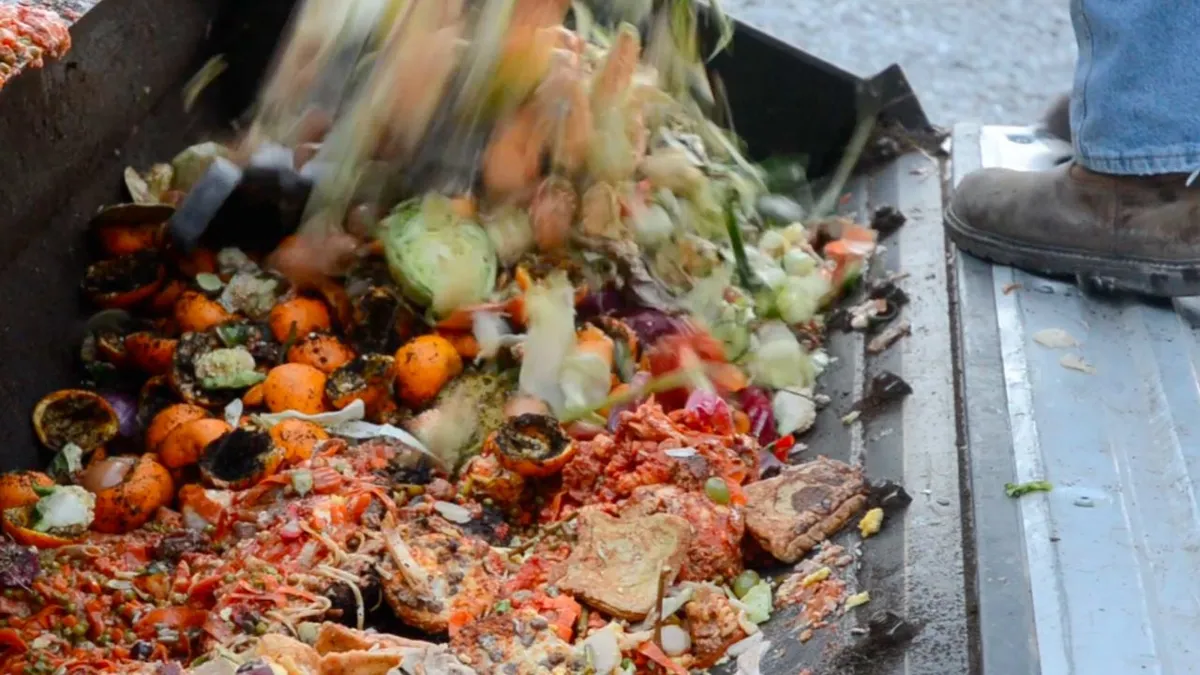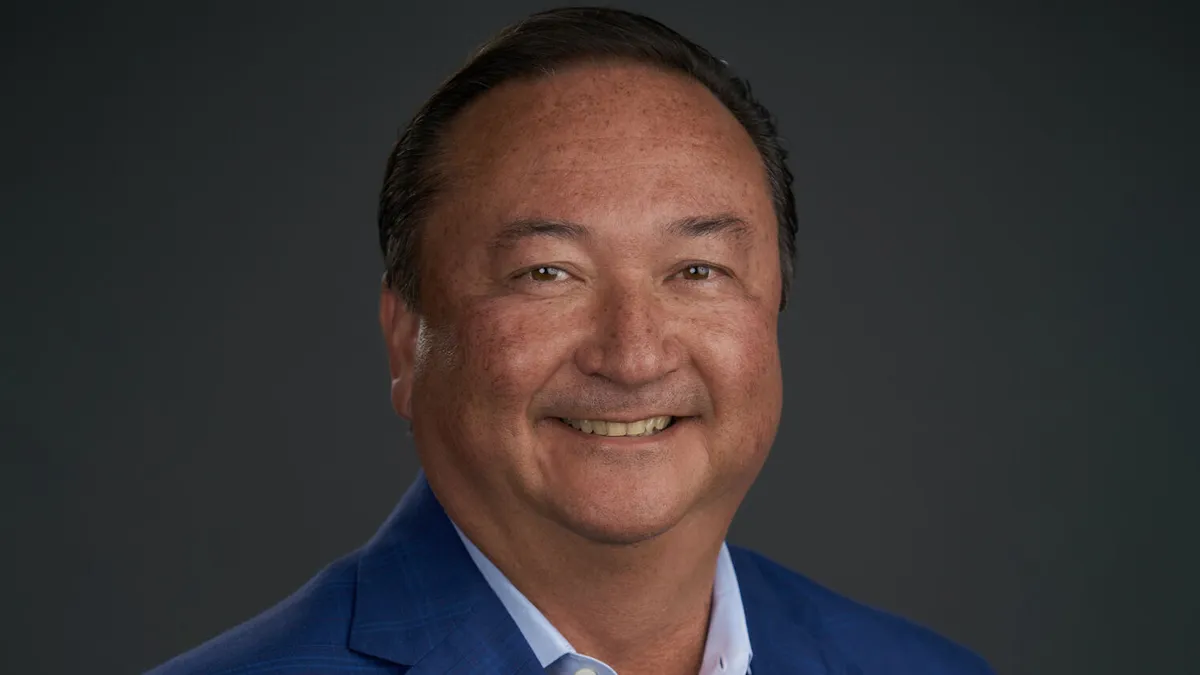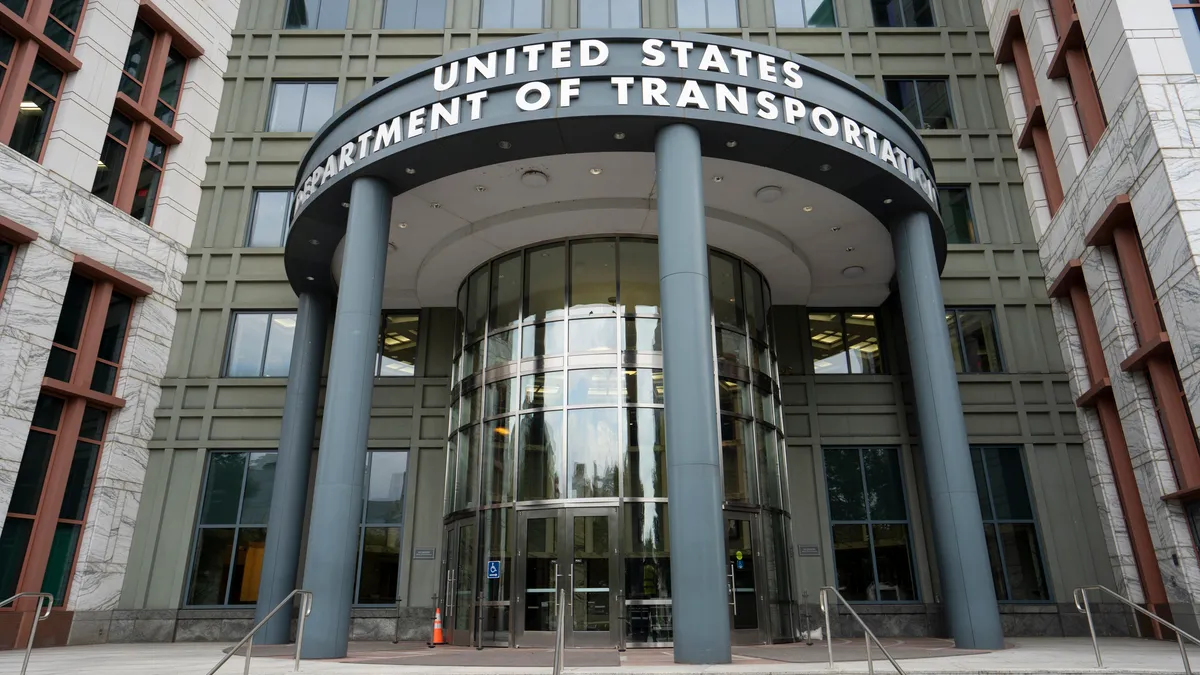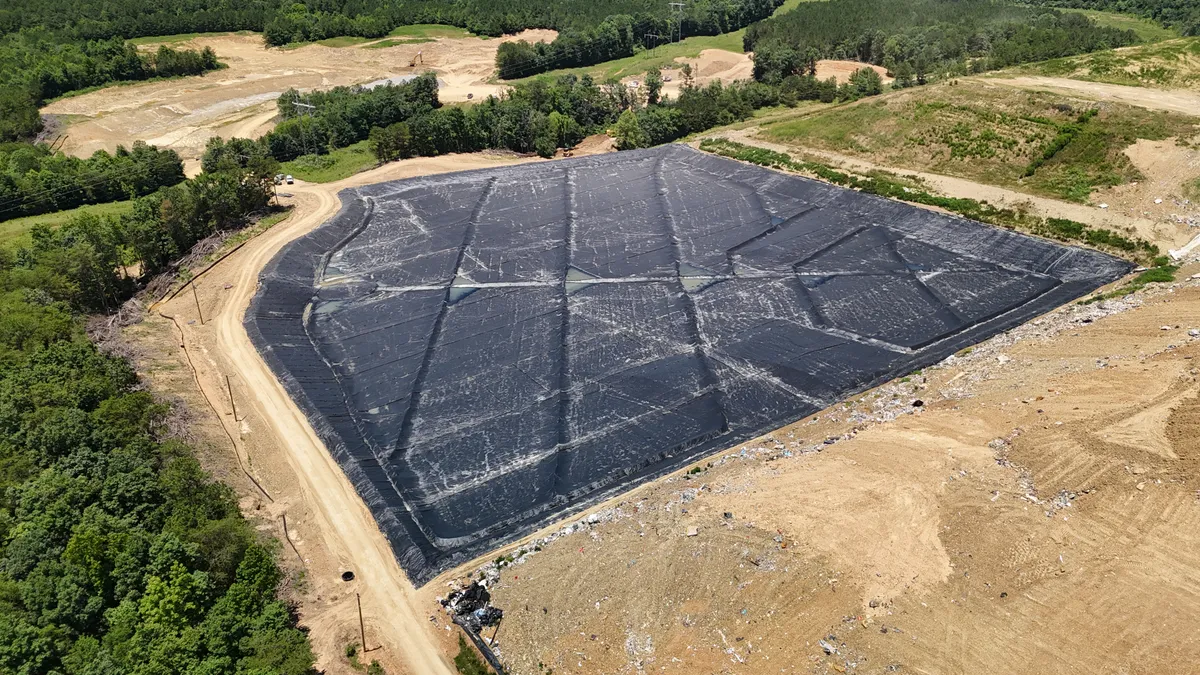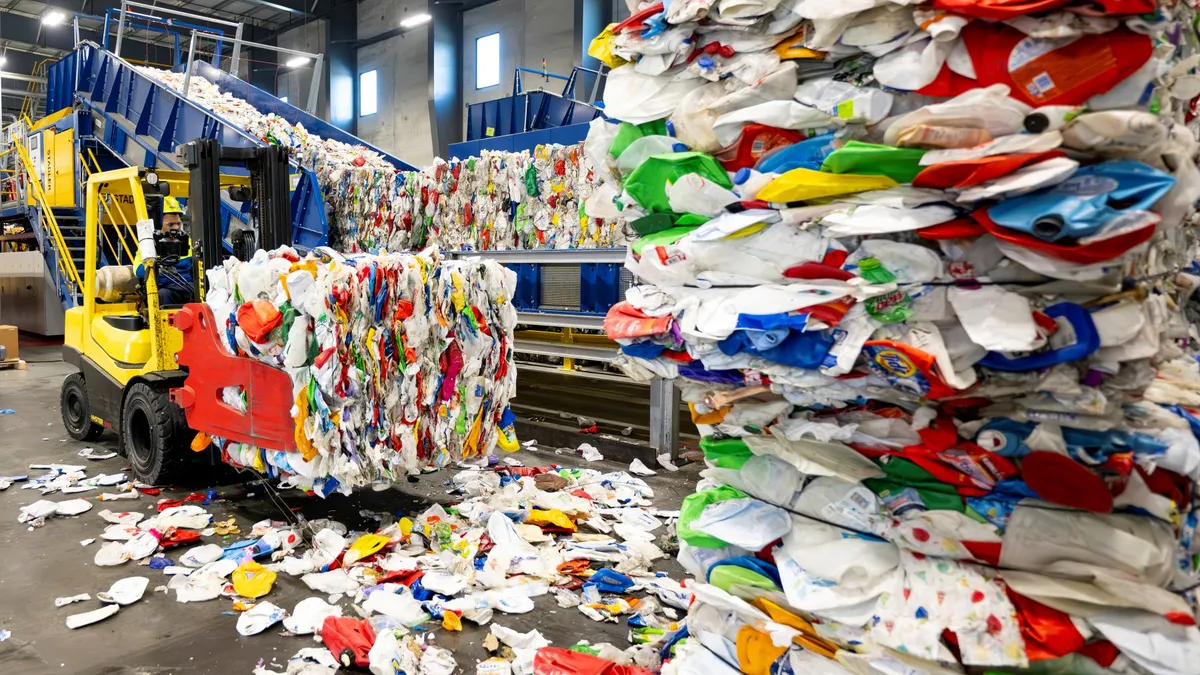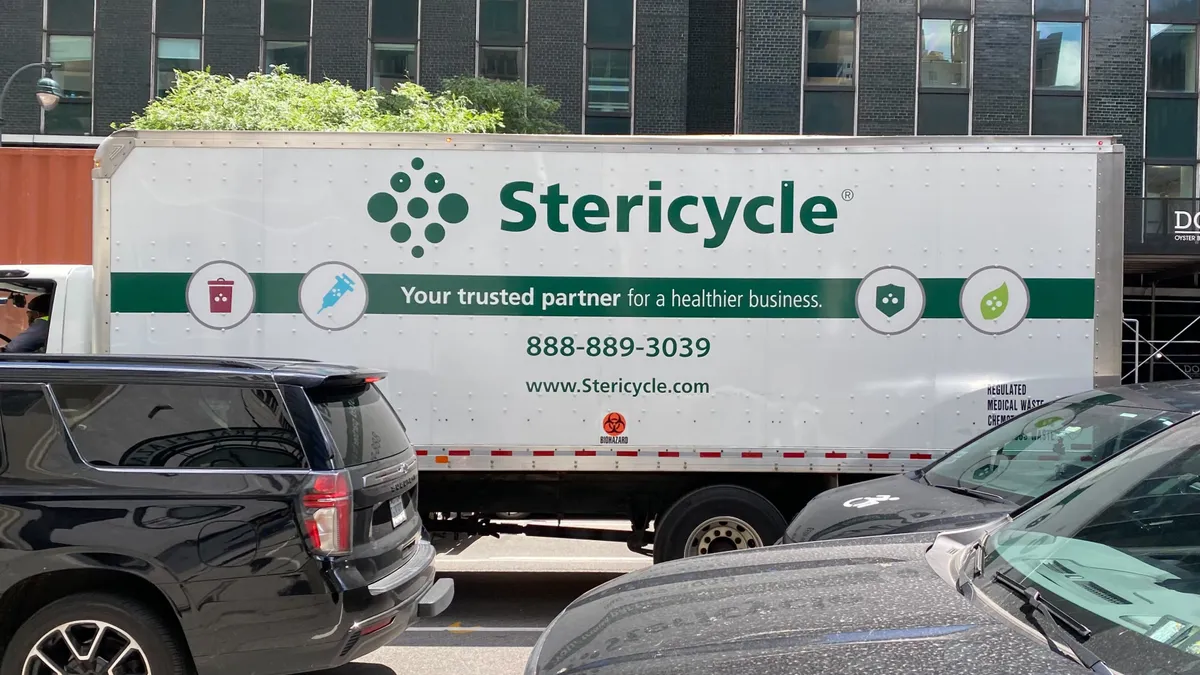As New York’s residential organic waste collection program enters its third year, the city is now moving to long-term disposal contracts with stricter processing requirements for the first time.
According to the Department of Sanitation (DSNY), six vendors have been selected for five-year contracts totaling more than $47 million. If all of these contracts move forward as planned, this will mark the beginning of a new phase in New York’s organics collection program. Yet some in the industry caution that the city still needs to scale up its capacity in a significant way—and a group of local elected officials have spoken out against approving the contracts.
The details
The city’s organics program predates Mayor Bill de Blasio, though has become a key part of his zero waste plan. Since this began as a pilot program in the fall of 2013, DSNY has expanded collections nearly tenfold to now include approximately 300,000 households and 720 of the city’s more than 1,800 public schools. The goal is to make curbside or drop-off programs available to all residents by the end of 2018.
In April 2016—the most recent data available—DSNY reported collecting 36.7 tons of organic material. This also included yard waste and green market collections. The six vendors that DSNY selected will be responsible for up to 250 tons per day (tpd) of capacity in anticipation of the program’s future growth.
The following vendors have been selected for contracts of 1,826 calendar days with the option of three five-year renewals.
-
Waste Management of NY LLC: 75 tpd, $15.75 million
-
American Recycling Management LLC: 65 tpd, $12.93 million
-
Brooklyn Transfer LLC: 50 tpd, $8.21 million
-
WeCare Organics: 20 tpd, $6.57 million
-
Hi-Tech Resource Recovery Inc.: 20 tpd, $1.99 million
-
Regal Recycling Co. Inc.: 20 tpd, $1.6 million
Vendors will have up to one year to install mechanical processing equipment, which must be approved by DSNY before any material can be handled. Contaminated material played a role in the closure of Delaware’s Peninsula Compost facility in 2014—which temporarily sent some of DSNY’s organics to landfills—so this new requirement is a useful one.
If a similar closure happens again, DSNY confirmed that it will be the vendor’s responsibility to find an appropriate alternative facility. The vendors listed McEnroe Farm in New York, New Milford Farms in Connecticut, Ag Choice in New Jersey, and Bedminster-Marlborough Inc. in Massachusetts as disposal facilities. This list will likely change as more regional capacity becomes available in the coming years.
WeCare Organics has already been processing material at the city's Staten Island Compost Facility and deferred any questions to DSNY.
Waste Management’s new Centralized Organic Recycling equipment (CORe) facility is processing material into a slurry that will be anaerobically digested at the Newtown Creek Wastewater Treatment Plant. Per the terms of their contract with the city’s Department of Environmental Protection, the plant’s operating agency, Waste Management was unable to provide further details at this time.
The other four vendors are all affiliated with local commercial waste hauling companies, and some have already been handling DSNY organics through short-term contracts. These long-term commitments will also help them become better equipped to take on more commercial material as the city begins requiring certain businesses to divert their food waste.
These companies did not respond to requests for comment, yet the manager of the National Waste & Recycling Association’s (NWRA) local chapter offered his insight.
"When the city's recycling program was launched in 1989 private recycling companies stepped up with facilities to process and market materials; now they're doing the same with handling organic wastes, using contracts with DSNY to spur investment in equipment and facilities—which also helps expand capacity to handle food waste from the commercial sector," Kendall Christiansen wrote in an emailed statement.
Capacity questions
While DSNY has said it believes the 250 tpd capacity guaranteed by these contracts is enough to cover the city’s residential and school collections, some in the industry wonder how they will expand further. Previous reports have estimated that city residents generate more than 1 million tons of food scraps per year. This works out to an average of 3,000 tons per day and that number could increase as the city’s population continues to grow beyond 8.5 million people.
"These are arguably good learning experiences, but at the end of the day they’ve got to push forward with a more comprehensive plan if they really want to think about moving another 2,700 tons a day," said Norman Steisel, an organics consultant who formerly served as a deputy mayor and sanitation commissioner.
Steisel agreed that longer-term contracts are smart from a fiscal perspective, depending on details such as escalation conditions. Yet he said in order to handle the tonnage needed to meet the city’s zero waste goals, it’s going to take a lot more than this current plan.
"The larger issue is how do you scale up," he said. "You’ve got to encourage people to create capacity by telling them what your plans are and their plans continue to be relatively opaque."
The question of how DSNY plans to grow capacity is one that experts have been asking for years. Steisel wrote an op-ed about this in January and the Citizens Budget Commission, a nonprofit civic organization, has released multiple reports on the program’s financial implications.
When asked if the city plans to continue contracting multiple vendors for small amounts of material or look for fewer vendors that can handle more tonnage, DSNY didn’t share its plans.
"The Department of Sanitation cannot say at this time. The contracts Sanitation has signed are for five years—with renewal options—which provides an opportunity to change strategy over time," Kathy Dawkins, DSNY’s director of public affairs, wrote in an emailed statement.
Christiansen agreed that this system is still in the "early innings" and left the door open for more involvement by the commercial waste industry.
"Over time we expect the partnership between DSNY and private recyclers to lead to permanent state-of-the-art composting and anaerobic digestion facilities, maybe even some within the city's borders," he wrote.
Where will it all go?
Many people involved with New York’s waste industry agree that it would be ideal to process organics—and other material—as close to the city as possible. Though finding a neighborhood that’s willing to take a new waste-related facility is the challenge. Three areas, the South Bronx, north Brooklyn and southeast Queens, currently host more transfer stations than anywhere else in the city and handle the majority of its waste.
Environmental justice concerns in these areas are behind multiple campaigns around changing the city’s use of private transfer stations. This recently led four members of the City Council to write a letter—originally published by Politico—asking Mayor de Blasio to put a hold on the new organics contracts.
Based on available information, two of the selected vendors operate private transfer stations in north Brooklyn and two operate in southeast Queens. DSNY said that contracts were awarded based on lowest total cost, not on location or other factors.
Antonio Reynoso, chair of the council’s sanitation committee and one of the letter’s authors, could not be reached for comment before publication. In May, he told Waste Dive that previous efforts to work with the city on this issue were unsuccessful and he’d become frustrated.
"The narrow-mindedness when it comes to determining where this trash goes is beyond me at this point," he said. "Zero [additional] tonnage should be brought into these communities going forward."
DSNY confirmed that the six contracts are registered with the city comptroller’s office and notices to proceed have been issued.



